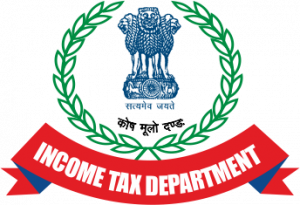In this article, we will discuss about...
Introduction
The Income Tax Act, of 1961 provides a mechanism for taxpayers to appeal against an order passed by an assessing officer. The appeal can be made to various authorities at different levels, depending on the nature and amount of the dispute. In this article, we will discuss the process of filing an appeal to the Commissioner of Income Tax (Appeals).
What is an Appeal to the Commissioner of Income Tax?
The Commissioner of Income Tax (Appeals) is an appellate authority appointed by the Central Board of Direct Taxes (CBDT) to hear and dispose of appeals filed by taxpayers against orders passed by assessing officers. The Commissioner of Income Tax (Appeals) is an independent authority and is not subordinate to the assessing officer who passed the order being appealed against.
The Commissioner of Income Tax (Appeals) has the power to uphold, modify, or cancel the order passed by the assessing officer. The appellant can also file additional evidence or produce witnesses before the Commissioner of Income Tax (Appeals) during the hearing of the appeal.
 Grounds for filing an Appeal to the Commissioner of Income Tax
Grounds for filing an Appeal to the Commissioner of Income Tax
The grounds for filing an appeal to the Commissioner of Income Tax may vary depending on the facts and circumstances of the case. However, the following are some of the common grounds for filing an appeal:
- Disagreement with the assessment order passed by the assessing officer
- Dispute regarding the amount of tax liability
- Disputes regarding the applicability of exemptions or deductions
- Dispute regarding the classification of income
- Dispute regarding the interpretation of the Income Tax Act, 1961
- Dispute regarding the computation of income or tax liability
Consult CA Arun Tiwari for more info at 📞 8080088288 or cs@aktassociates.com
Procedure for filing an Appeal to the Commissioner of Income Tax
The procedure for filing an appeal to the Commissioner of Income Tax is as follows:
Step 1: Drafting the appeal
The appellant must draft the appeal in the prescribed format as per Rule 45 of the Income Tax Rules, 1962. The appeal must contain the following details:
- Name and address of the appellant
- Permanent Account Number (PAN) of the appellant
- Assessment year to which the appeal relates
- The order against which the appeal is filed
- Grounds of appeal
- The relief sought by the appellant
- Amount of tax disputed
The appellant or their authorized representative must sign and verify the appeal.
Step 2: Payment of Appeal Fees
The appellant must pay the appeal fees as per the provisions of the Income Tax Act, 1961. The appeal fees may vary depending on the amount of tax disputed. One must make the payment of appeal fees through a challan in a designated bank.
Step 3: Filing the appeal
The appellant must file the appeal in Form No. 35 with the office of the Commissioner of Income Tax (Appeals) having jurisdiction over the case. The appeal must be filed within 30 days from the date of receipt of the order being appealed against.
Step 4: Service of notice
The Commissioner of Income Tax (Appeals) will issue a notice to the assessing officer who passed the order being appealed against, asking him to file a reply to the appeal within a specified time period.
Step 5: Hearing of the appeal
The Commissioner of Income Tax (Appeals) will hear the appeal and give an opportunity to the appellant and the assessing officer to be heard. The appellant can also produce additional evidence or produce witnesses before the Commissioner of Income Tax (Appeals) during the hearing of the appeal.
 Step 6: Order of the Commissioner of Income Tax (Appeals)
Step 6: Order of the Commissioner of Income Tax (Appeals)
After hearing the appeal and considering all the evidence and arguments, the Commissioner of Income Tax (Appeals) will pass an order either upholding, modifying, or canceling the order passed by the assessing officer. The order of the Commissioner of Income Tax (Appeals) must be passed within one year from the end of the financial year in which the appeal was filed.
Appeal to the Income Tax Appellate Tribunal
If the appellant is not satisfied with the order passed by the Commissioner of Income Tax (Appeals), he can file an appeal to the Income Tax Appellate Tribunal (ITAT) within 60 days from the date of receipt of the order. The ITAT is the second appellate authority under the Income Tax Act, of 1961.
The ITAT is a quasi-judicial body and is independent of the Income Tax Department. The ITAT has the power to pass orders on appeals against orders passed by the assessing officer or the Commissioner of Income Tax (Appeals). The order of the ITAT is binding on the parties to the appeal and on the Income Tax Department.
Appeal to the High Court and Supreme Court
If the appellant is not satisfied with the order passed by the ITAT, he can file an appeal to the High Court within 120 days from the date of receipt of the order. The High Court can hear appeals on questions of law arising out of orders passed by the ITAT.
If the appellant is not satisfied with the order passed by the High Court, he can file an appeal to the Supreme Court within 60 days from the date of receipt of the order. The Supreme Court can hear appeals on questions of law arising out of orders passed by the High Court.
Conclusion
The appeal process is an important mechanism for taxpayers to seek redressal against orders passed by assessing officers under the Income Tax Act, of 1961. The Commissioner of Income Tax (Appeals) is the first appellate authority under the Income Tax Act, of 1961, and provides an opportunity for the appellant to present his case and produce additional evidence or witnesses.
The appeal process can be time-consuming and may involve a significant amount of legal and procedural requirements. It is advisable for taxpayers to seek the assistance of a qualified and experienced tax professional to guide them through the appeal process.
Overall, the appeal process plays an important role in ensuring that taxpayers are treated fairly and justly under the Income Tax Act, of 1961. It is a vital component of the Indian tax system and helps to maintain the integrity and credibility of the taxation regime.


